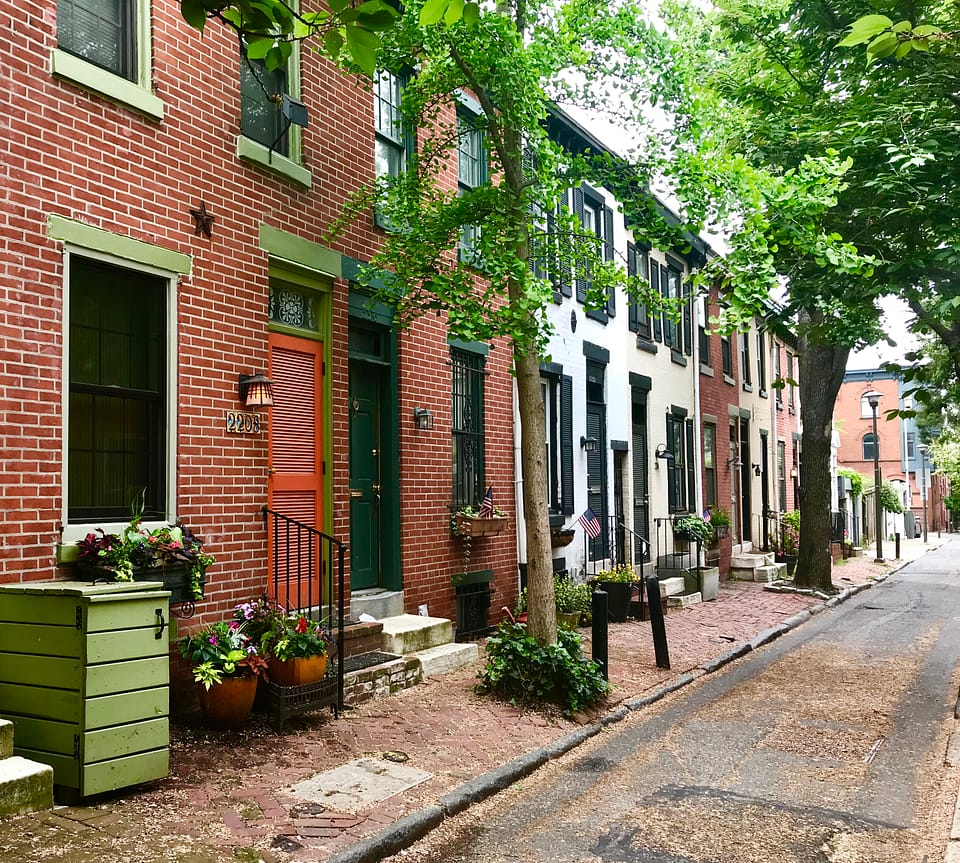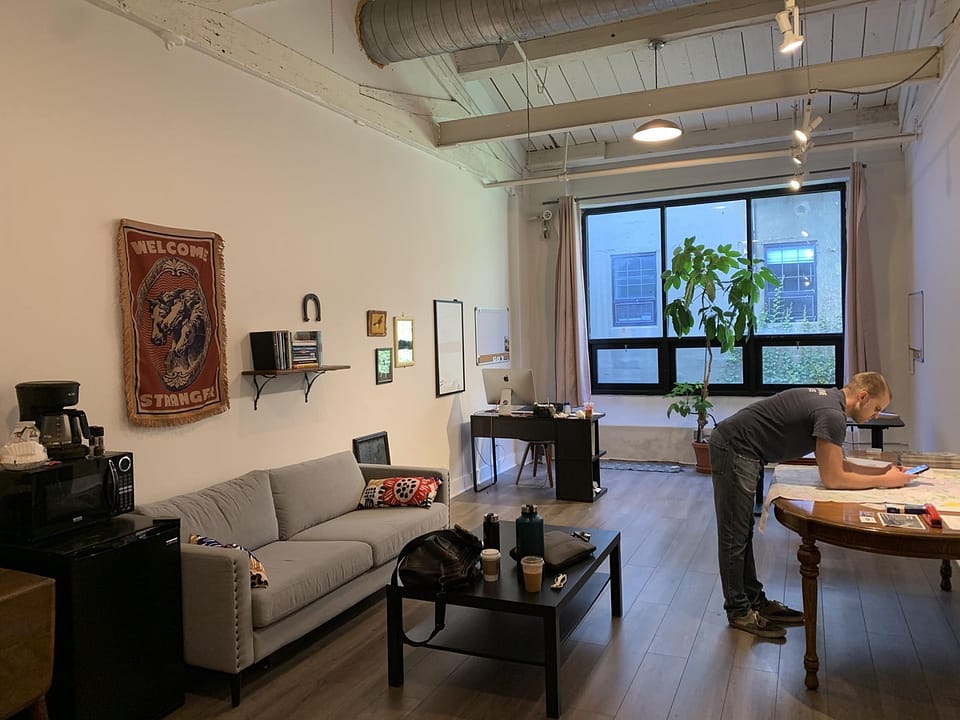13 Factors That Affect Home Insurance Rates

If you ever wondered if the world of residential real estate ends somewhere, it doesn’t. As a homebuying business in Philadelphia, we have seen firsthand the importance of affordable home insurance rates.
Every homeowner looking to purchase home insurance will always try to find the best possible rates. These rates differ based on several factors.
1. State
Average home insurance premiums differ from one state to another. Generally, they are determined by:
– How expensive are the properties
– Cost of living
But, in some cases, there are additional surprising factors like:
– Climate
– Population size
ValuePenguin suggests that homeowners in Delaware pay an average of $598 a year for home insurance, whereas the average cost in Oklahoma is $2,559.
2. Location
More specific than the state you live in, the exact location of your property impacts the home insurance rates you’re offered. This can include:
– Crime rates nearby.
– Proximity to town centers and cities.
– Distance to fire stations and/or fire hydrants.
– Water sources nearby, e.g., rivers and lakes.
Areas with higher crime rates, closer proximities to towns, further distances to emergency services, and water nearby will often be offered a higher home insurance premium.
3. Weather

If your state is prone to hurricanes, hailstorms, tornadoes, and other catastrophic natural disasters, then you can expect to pay steeper home insurance premiums. As expected, this is because natural disasters can cause significant damage to a property.
The more the weather can cause damage, the more frequently home insurance companies have to pay out to homeowners. This leads to higher premiums across the state, regardless of whether you’ve claimed before.
One of our friends in Florida pays a significant insurance premium for home insurance because of the risk of hurricanes. At one of our get-togethers, he asked me how I felt about my home insurance rate.
My simple answer to him was, “I used to think that a monthly rate of $1,500 for San Diego was a lot, but based on his $4,000 premium a month, I am much happier!”
Safe to say, he wasn’t overjoyed to hear that!
4. Deductible
A deductible is an amount you initially pay when filing a claim. If you’re willing to pay a higher deductible, your insurance provider will likely charge you lower premiums. The opposite is true if your deductible is low.
Choosing a higher premium can be beneficial to lower your annual home insurance cost. But remember that it may not always be more cost-effective overall, particularly if you have to make one or more claims a year.
5. Property Age

Higher insurance rates are likely if the home you’re insuring is older and/or a historic property. This is because the risk of damage, and, therefore, claims, is higher when the electrical wiring, plumbing, and other systems of your home are aging, too.
Likewise, newer properties will usually have a lower home insurance premium, since the structure, pipework, foundation, and other amenities are more modern (and therefore less likely to break soon).
6. Risk Factors Within Your Property
What do swimming pools, trampolines, and wood-fired stoves have in common? They are all risk factors within your property as far as insurers are concerned. If you have any, or all three, in your home, you can expect to pay higher rates for your home insurance.
Jon was surprised to know that the pool he installed at home would increase his insurance premium. But from the insurance company’s perspective, a swimming pool is a risk factor and hence the increase.
7. Building Materials
Properties made from wood are susceptible to termites, water damage, and severe damage from fires. Therefore, insurance premiums for properties built with these materials will be higher than those built with stone or brick.
8. Dog Breed
Now this one was a bit surprising even for me. Many insurance providers take the breed of dogs you have at home into consideration when determining your insurance rates. Some breeds have a reputation for being more aggressive than others, which raises the risk of people filing a liability claim.
One of our employees has a pitbull and pays a hefty home insurance premium. I was shocked to hear that dog breeds are a part of this. I never thought I’d say this, but I’m glad that my wife is allergic to dogs!
9. The Presence (or Absence) of Safety & Security Measures
Insurers also check if your home has security systems, fire alarms, smoke detectors, and other safety measures. Having good measures in place (like wired-in smoke alarms and security systems) can lead to a lower insurance premium.
Not having these safety measures on a property, or having battery-operated devices, can raise home insurance premiums. This is because the house is not considered safe, and the safety devices are not as reliable.
10. Your Preferred Level of Coverage
As expected, your home insurance rates will be higher or lower depending on the level of coverage you want. Higher coverage limits mean higher premiums, and lower coverage means lower premiums.
11. Marital Status

When you’re a single homeowner, it’s common for your home insurance premiums to be higher than if you are married or living with a partner. This is because insurance providers typically associate singlehood with a reduced chance of being home to alert authorities about a fire or a burglary.
All couples should thank their partners for simply existing.
12. How Often You Make Claims
The more frequently you file a home insurance claim, the higher your rates will likely be. That’s why many homeowners refrain from filing claims for relatively minor damages. Claims often stay on your records for up to five years (depending on the provider).
So, you could be paying off the claim for many years to come. Sometimes, depending on the job, it’s better to fix issues yourself or call the right professionals for the job rather than submit a claim.
13. Your Credit Score
A low credit score will always haunt you wherever you go, even when you’re buying home insurance. A good credit score means great home insurance rates and even discounts. On the other hand, poor credit can prevent you from getting the policy you want or even get insurers to decline to offer you a policy.
Are These Factors Correct?
There’s no black and white when it comes to factors. Hurricanes are considered a risk factor in Florida, so there’s a premium for that, but the same cannot be said for homes in Philly or San Diego. A variety of factors can influence home insurance premiums.
Understanding your home insurance premiums can help you calculate the costs of living and whether it’s worth buying the property.
And as for me, I am now going to take a look at what aspects of my home might increase the home insurance rates!
